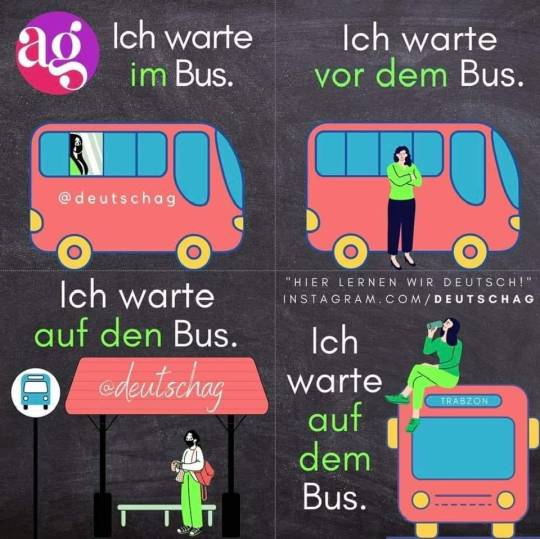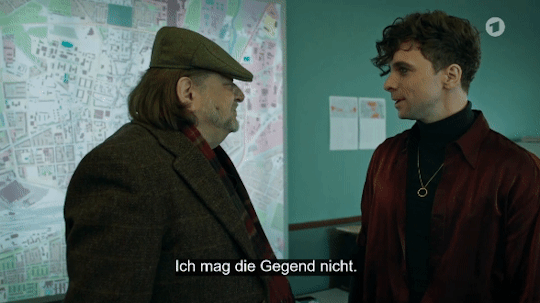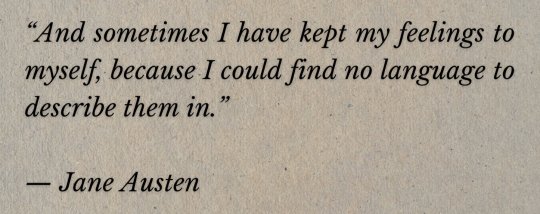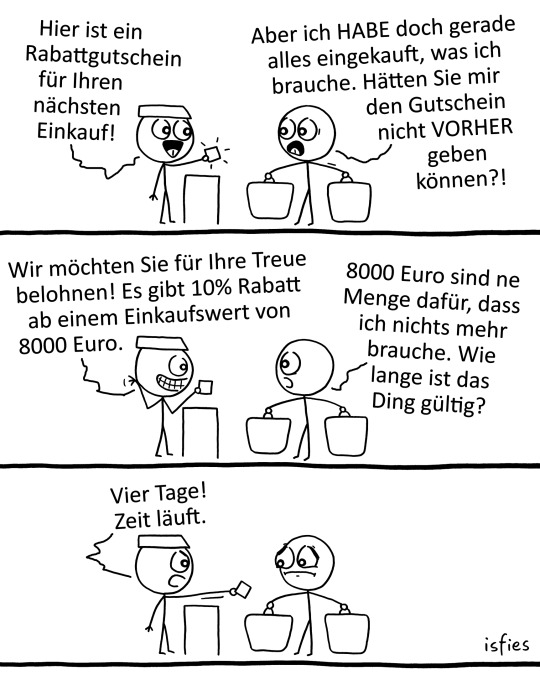Text
Random German Vocabulary (97)
die Abwärtsspirale -- downward spiral
der Docht (pl. die Dochte) -- wick
die Nebelschwaden (pl.) -- wisps of fog
der Zauberlehrling -- sorcerer's apprentice
besänftigen -- to soothe; to calm
knarzen -- to creak
(jemanden) schmähen -- to malign (someone)
verunglücken -- to have an accident
absolviert -- successfully completed
evolutionär -- evolutionary
frappierend -- striking; remarkable
gerechtfertigt -- justified
mit knapper Not -- narrowly; barely
zwischen Tür und Angel -- in passing
(das) ehrenamtliches Engagement -- volunteer work
hoher Besuch -- distinguished guest
23 notes
·
View notes
Text
Ich wünschte ich könnte unsere Zeit noch ein letztes Mal erleben, dein Ich liebe dich noch ein Mal hören und es mit dir noch ein letztes Mal genießen.
@xinaxh
284 notes
·
View notes
Text
hey, if you ever wanted to learn russian, here is a online textbook called Между Нами and here is the pdf download link to the classroom activities workbook and the homework workbook. it has audio so you can listen and read and one of the first exercises in the homework book is teaching you how to write in russian cursive. it is for complete beginners and in my opinion is a way better (and ad-free) way of learning russian compared to the many language learning apps out there.
458 notes
·
View notes
Text
German dass-Sentences
dass, when spelled with two s is not an article but starting a subordinate sentence, like a "that" might:
Ich weiß, dass ich klug bin.
I know that I am smart.
Unlike in English, you have to separate the subordinateclause with a comma!
Like in English, you can pull the relative clause in front of the main sentence. You'll then have to reverse the word order though! (verb to the end)
Ich weiß, dass ich klug bin. -> Dass ich klug bin, weiß ich.
I know that I am smart -> That I am smart, I know.
Here's a bunch of starters:
Ich weiß, dass... (I know that...)
Ich glaube, dass... (I believe that..)
Ich denke, dass ... (I think that...)
Er sagt, dass... (He says that...)
Es ist wichtig, dass man/du/wir... (It's important that one/you/we ...)
Sie behaupten, dass... (They claim that...)
Wir hoffen, dass... (We hope that...)
Sie sagt, (dass) sie hofft, dass du bald wieder gesund wirst.
(She says (that) she hopes that you'll be well soon.)
Ich denke, dass das keine gute Idee ist.
(I think that that is not a good idea.)
192 notes
·
View notes
Text
ohne Punkt und Komma reden
literally: to talk without periods and commas
to talk continuously, to not let the other person have their say
60 notes
·
View notes
Text
Doch - one of the best German words
"Ich habe deine Mutter nicht getötet" - Doch!
"Ich habe nicht gelogen" - Doch!
"Du wolltest doch nicht mitkommen" - Doch!
Doch has many meanings, among the best is used above. Duden calls this usage:
"als gegensätzliche Antwort auf eine negativ formulierte Aussage oder Frage in Konkurrenz zu „ja“ bei einer positiv formulierten Frage und in Opposition zu „nein“"
(as contrary answer to a negative statement or question..."
So what does "Doch" mean here?
You say doch when someone makes a negated claim (I didn't kill your mother; i didn't lie; you didn't want to come with) and you want to say that in fact they DID/you DID
-> it's negating a negated statement/question
Doch can also be used in different ways (though not as fun):
"Es wird doch nichts passiert sein?" -> strengthens the question, similar to "surely...?"
"Das ist doch nur dumm!" -> fortifies unhappiness or frustration in a Statement/question, similar to "straight up, simply..."
"Ihr kommt doch heute Abend?" -> fortifies hope in a statement/question, like "you ARE coming, RIGHT?"
(you tell the two apart by overall mood of the person speaking)
"Wie ging der Text doch gleich?" -> implies the person knows the thing they ask about but can't recall at the moment
"Sie kommt doch nicht mit" -> confirms something that had been a theory up until then, similar to "after all"
531 notes
·
View notes
Text
German Vocabulary: Painting
die Acrylfarbe – acrylic paint
die Aquarellfarbe – watercolour paint
das Aquarellpapier – watercolour paper
das Bindemittel – binder; binding agent
die Borsten (pl.) – bristles
der Fächerpinsel – fan brush
die Farbe – colour; paint
der Firnis (pl. die Firnisse) – varnish
die Gouache – gouache
die Grundierung – primer
das Harz (pl. die Harze) – resin
das Leinöl – linseed oil
die Leinwand (pl. die Leinwände) – canvas
der Malgrund (pl. die Malgründe) – [painting] surface
der Malkasten – paintbox
das Malmittel – medium
der Napf (pl. die Näpfe) – pan [of watercolour]
die Ölfarbe – oil paint
das Ölmalpapier – oil painting paper
die Palette – palette
das Palettenmesser – palette knife
das Pigment (pl. die Pigmente) – pigment
der Pinsel (pl. die Pinsel) – brush
der Schwamm – sponge
der Spachtel – painting knife
die Staffelei – easel
die Tafel – panel
das Terpentinöl – turpentine
die Tube – tube
das Verdünnungsmittel – thinner
das Wassergefäß – water container
die Acrylmalerei – acrylic painting
das Aquarell – watercolour
der Effekt (pl. die Effekte) – effect
der Entwurf – sketch, outline
die Komposition – composition
die Lasur – glaze
die Lavierung – wash
die Malerei – painting
die Ölmalerei – oil painting
die Skizze – sketch
der Pinselstrich (pl. die Pinselstriche) – brushstroke
die Technik – technique
die Textur – texture
der Ton (pl. die Töne) – shade; tone
aquarellieren – to paint in watercolours
aufspannen – to stretch
lasieren – to glaze
malen – to paint
maskieren – to mask
mischen – to mix; to blend
reinigen – to clean
trocknen – to dry
tupfen – to dab
tüpfeln – to dot
überziehen – to coat
verdünnen – to thin; to dilute
blass – pale
dunkel – dark
durchsichtig – transparent; clear
flüssig – liquid
glatt – smooth
gleichmäßig – even; consistent
lichtdurchlässig – translucent
marmoriert – marbled
monochrom – monochrome
nass – wet
rissig – cracked
transparent – transparent
trocken – dry
überlappend – overlapping
wasserlöslich – water soluble
fett auf mager – fat over lean
hell-zu-dunkel – light to dark
nass-in-nass – wet-on-wet
nass-auf-trocken – wet on dry
92 notes
·
View notes
Photo

https://www.facebook.com/photo?fbid=592267812945832&set=a.311858110986805
130 notes
·
View notes
Photo

https://www.facebook.com/photo/?fbid=561692462798670&set=a.475375251430392
106 notes
·
View notes
Text
A little German text style guide
Here are some rules about how to use quotation marks, dates, times, numbers, and addresses in German texts:
Quotation marks:
Quotation marks in German texts usually look like this:
„Hallo, ich heiße Espen.“
„Ich glaube nicht“, sagte er, „aber ich bin mir nicht sicher.“
Er sagte: „Ich habe einen Apfel gegessen.“
Date:
The date is written in the form day/month/year, usually like this:
am 3. August 2023 (read: "am dritten August 2023")
am 03.08.2023 (read: "am dritten August 2023")
Time:
The time is usually stated in a 24 hour format (otherwise you add 'in the morning' or 'in the evening' to clarify):
Es ist 18:40 Uhr. (read: "Es ist 18 Uhr 40")
Es ist 4 Uhr nachmittags.
Numbers:
The points and commas in numbers look like this:
eleven thousand = 11.000 (e.g. 11.000 Maschinen)
eleven point three = 11,3 (e.g. 11,3% Umsatz)
Address:
Addresses on letters are usually written like this:
Max Mustermann (first & last name)
Musterstraße 11 (street name & house number)
12345 Musterstadt (postcode & city)
Germany (country)
383 notes
·
View notes
Text
youtube
Learn Swedish, Lesson 3: Summer and Outside
6 notes
·
View notes
Text
For German Learners 🇩🇪: German Fairy Tale Films
The German TV channel ARD is filming loads of German fairy tales and uploading them for free on their website!
Most of them are just 60 minutes long.
The films are in German with German subtitles and they even offer some versions with audio description and German Sign Language (DGS)!
Here’s a list with links to the films:
“Schneewittchen” (Snow White): film, audio version
“Aschenputtel” (Cinderella): film, DGS version
“Rotkäppchen” (Red Riding Hood): film
“Der Geist im Glas” (The Spirit in the Bottle): DGS version
“Das Märchen von den 12 Monaten” (The Fairytale of the 12 Months): film
“Die drei Königskinder” (The Three Children of the King): film
“Die Sterntaler” (The Star Money): film
“Hänsel und Gretel”: film
“Nussknacker und Mausekönig” (The Nut Cracker and the Mouse King): film, audio version, DGS version
“Der starke Hans” (Strong Hans): film, DGS version
“Das Mädchen mit den Schwefelhölzern” (The Little Match Girl): film, audio version, DGS version
“Vom Fischer und seiner Frau” (The Fisherman and His Wife): film
“Das singende, klingende Bäumchen” (The Singing Ringing Tree): film
“Der Meisterdieb” (Masterthief): film
“Das tapfere Schneiderlein” (The Valiant Little Tailor): film, DGS version
“Das blaue Licht” (The Blue Light): film
“Die drei Federn” (The Three Feathers): film, audio version
“König Drosselbart” (King Thrushbeard): film
“Das Wasser des Lebens” (The Water of Life): film, audio version
“Allerleirauh” (All-Kinds-Of-Fur): film, DGS version
“Das Märchen vom goldenen Taler” (The Story of the Golden Thaler): film, DGS version
“Der Froschkönig” (The Frog Prince): film, audio version, DGS version
“Des Kaisers neue Kleider” (The Emperor’s New Clothes): film, audio version, DGS version
“Der Prinz im Bärenfell” (The Prince in the Bearskin): film
“Die kleine Meerjungfrau” (The Little Mermaid): film, audio version, DGS version
“Rumpelstilzchen”: film, audio version
“Die Bremer Stadtmusikanten (The Town Musicians of Bremen): film, DGS version
“Der Teufel mit den drei goldenen Haaren” (The Devil With the Three Golden Hairs): film, audio version
“Die zertanzten Schuhe” (The Worn-Out Dancing Shoes): film, audio version, DGS version
“Die Galoschen des Glücks” (The Galoshes of Fortune): film, DGS version
“Der gestiefelte Kater” (Puss in Boots): film, DGS version
“Brüderchen und Schwesterchen” (Little Brother and Little Sister): film, audio version, DGS version
“Die Salzprinzessin” (The Salt Princess): film, audio version, DGS version
“Dornröschen” (The Sleeping Beauty): film, audio version, DGS version
“Das Märchen von der Regentrude” (The Rainmaiden): film, audio version, DGS version
“Helene die wahre Braut” (The True Bride): film, audio version, DGS version
“Hans im Glück” (Hans in Luck): film, audio version
“Der Schweinehirt” (The Swineherd): film, audio version, DGS version
“Von einem, der auszog, das Fürchten zu lernen” (A Boy Who Went Forth to Learn Fear): film, audio version, DGS version
“Die kluge Bauerntochter” (The Peasant’s Wise Daughter): film, audio version, DGS version
“Schneeweißchen und Rosenrot” (Snow-White and Rose-Red): film, audio version, DGS version
“Die Gänsemagd” (The Goose Girl): film
“Die Prinzessin auf der Erbse” (The Princess and the Pea): film
“Prinzessin Maleen” (Princess Maleen): film, audio version
“Siebenschön” (Pretty-as-seven): film
“Tischlein deck dich” (The Wishing-Table): film, audio version, DGS version
“Das Märchen vom Schlaraffenland” (The Story of the Land of Plenty): film
“Jorinde und Joringel”: film, audio version
“Prinz Himmelblau und Fee Lupine” (Prince Sky-Blue and Lupine the Fairy): film, audio version, DGS version
337 notes
·
View notes
Note
Do you have any tips on how to improve your writing in your target language ? I've been learning English for four years and I still write like a five year old
Here's some ideas:
If you struggle with forming sentences, you could start by simply copying texts in your target language, e.g. news articles, quotes, lyrics, and so on. That way you'll get used to the rhythm of the language and how the sentence structure looks
If you don't know what to write about, maybe you could write daily diary entries. Or short summaries of your favourite books or films. Or you could make a special tumblr blog dedicated to posts about something you're passionate about, e.g. describing comic books, writing fan fics in your target language, translating memes into your target language, etc.
Maybe you can try the app Slowly. It's an app where you can find penpals around the world who speak your target language or are also learning that language. Find someone, send them a nice letter, and then you can practice together
The most important thing is that you practice regularly, so finding nice people to talk to or finding a topic you're passionate about and love writing about would probably be the best tips i have
I hope this helps a bit!
44 notes
·
View notes
Text
20 German culture things
✨ Maggi ✨ no idea what it actually is, but we put it on everything (or at least my dad does lol)
many of us eat bread for breakfast AND dinner and only eat warm food for lunch
chimney sweeps, they come whenever they want, climb on your roof without having to ask and leave again, only leaving behind a bill
if you want to drive on the Autobahn and don't want to go 200 km/h, you'll have to stay in the right lane or hurry up, we don't like people slowing us down
we have strong opinions about the different German dialects and (at least here in NRW) we're worried for any German learners going to Bavaria or other regions with similarly strong dialects
German dialects can be differentiated by how you say the word "right?", there's: gell? wa? ne? woll? and many many more
there are several Great German Debates. example: 1. what's the gender of Nutella? (it's clearly "das"), 2. what do you call our jam-filled donuts? Berliner? Krapfen? Pfannkuchen?
every German dialect has their own words for different stuff, e.g. the name for bread ends, the name for buns, the name for buttered bread (sandwich), etc
if you're on time, you're late. be there 5 minutes early and you're good
everyone is punctual. always. except the Deutsche Bahn
you can't make any noise on sundays! you can't mow your lawn, you can't throw away glass!
most doctors and pharmacies are closed on wednesday afternoons. no idea why
Döner. we love döner and you'll find kebab shops everywhere
no German flags anywhere, except when it's football world championship or european championship
you pay for still water at restaurants & to pee at motorway restaurants
if the traffic light is red, we don't cross the road. even if there's no cars for miles. you do not. cross. the road. when it's red
yes, many Germans can speak English fairly well, as long as you don't ask us to pronounce "th"
there's "cold" rent and then there's "warm" rent
everything in our cinemas and on TV is dubbed, only rarely will a movie be shown in original tone, that's for "special" occasions
our prime time for when to watch the best stuff on TV is 8:15pm
491 notes
·
View notes



